You email a dozen editors of a dozen authority websites to submit a guest post and then you wait…
Two days in, crickets. One week later, still nada… Sounds familiar?
In this post, I share a framework for consistently landing guest posts on authority websites. You don’t need to use any complicated SEO tools to do this, be a superhuman, or an authority figure in your industry.
You just need to be willing to roll up your sleeves and get to it. Oh, and be a nice person.
Before I share my patent-pending framework, “how to network to the stars,” let me provide some context to this post about online networking for content marketing success.
My Years in the SEO Wilderness
Ever since I was a kid, I've loved writing. I guess it's inevitable I ended up in a job creating content. Yet my first content marketing job felt like an endless struggle.
I was hired to increase website traffic and write guest posts for a friend's business. I had almost no experience landing guest posts. Every day I'd wake up, grab breakfast, and hit my laptop. I'd go to an authority website on my target list, and would choose between:
Spending 3-4 hours writing an article I hoped would be a good fit for their site.
Spending a good 20 minutes browsing the website, trying to find content gaps. Then spending 5-10 minutes filling out long guest post forms where they ask for everything but your mother's maiden name.
Both options sucked. And what's worse, few of these sites ever responded to my guest post inquiry. So that was me. I was stuck in a cycle of filling out forms people rarely replied to, and writing articles for sites that would never publish the content.
It seemed like there was a razor-wire fence filled surrounded by a moat with hungry crocodiles between these authority sites where I was supposed to land links and me. This situation went on for a long time. It was pretty frustrating.
It was a pain to get links, and the shortcut SEO tools that promised to land you on the top spot of Google were about as reliable as their 30-day money-back guarantee.
My Aha Moment…
After persevering as a content marketer, I landed a role with an SEO agency. I was prepared to be blown away by complex strategies for getting content to rank on Google. Instead, I discovered that once you’ve dealt with all the on-site issues, like site speed, the agency formula for ranking client content is remarkably simple.
It goes something like this.
Good keyword-focused content + Relevant high-quality links to your target page = High rankings
From the outside, I always felt like SEO required the IQ of a rocket scientist to comprehend. It doesn't. That’s not to say there’s no skill to SEO, there clearly is. However, many people make it seem more complex than necessary.
SEO is competitive, though. Companies invest in content marketing and SEO to try to rank for their target keywords. As a result of the link building, it’s increasingly harder to appear at the top of the search results. If you’ve been running an online business for a few years, you’ll have noticed this.
The value of ranking for those keywords is still there. The hard part of SEO is securing these links.
You need to be willing to invest more time and effort than your competition to profit from your content marketing. This struggle is what Seth Godin calls the “dip.”
Source: Bennadel
Not all links are created equal. If you can acquire links from authority sites in your niche, you can get through the dip faster than a competitor who cannot.
My second “aha” moment was stumbling upon a useful Facebook group. The group is called B2B Bloggers Boost Group. The name is rather self-explanatory. It was my introduction to the importance of online networking.
In this group, I started to make friends with editors across different websites in my niche. Suddenly, by becoming friends with editors at relevant publications, I started to land guest posts easily.
It highlighted the importance of online networking.
That old saying, “it’s not what you know it’s who you know” rang true. I decided to focus on my networking. Things changed for me. I was getting included in expert roundups, writing guest posts for decent sites, and more. I shot through the dip and out the other side.
In the rest of this article, I will share my condensed lessons from all those years I’ve spent doing content marketing, making mistakes, and learning from them.
Hopefully, you can apply these online networking lessons to your business so you can achieve your content marketing goals.
The Three Levers of Social Influence
When you’re reaching out to secure guest posts, you have three weapons at your disposal. These are:
- Website authority
- The pitch
- Your network
If you have a high-authority site, then networking is pretty easy. Your pitch might be something like this:
Hi NAME,
I work for Awesome Company. We get 50,000,000 visitors a month and have an email list of 100,000,000. Are you open to some form of content collaboration? It could be guest posts, webinars, email marketing campaigns, etc. We like what you do and believe there’s an overlap in our customer base. Let’s hook up for a call, and we can discuss opportunities.
Buzz Lightyear
Having undertaken outreach for Fortune 500 companies, I can tell you a simple email template like that is effective. The copy is less important because you can leverage your authority, a precious commodity.
Unfortunately, most of us have minimal authority to leverage. "I run a site that gets 5,000 visitors a month" sounds lame.
So that brings us to the guest post pitch.
Relying on cold outreach does work. I’ve found cold outreach to mid-range sites — say Ahrefs' Domain Rating of 40-70 with less than 15,000 monthly visits — is effective. I use this approach all the time for clients.
Here’s an example of a template I might use.
Subject line: 5-Star Content 🌟
Hi NAME,
I’m sure you’ve had dozens of guest post requests this week, but I hope this one stands out :) I spent the last hour reviewing your site against competitors. Through my research, I identified a couple of keyword gaps on your website, which a quality guest post could fill.
If you’re accepting guest posts, I’d love to share the keywords I’ve identified with you. I’m sure I can hit your editorial guidelines and produce the kind of long-form comprehensive content you’re looking for.
In the last few months, I’ve written content for SITE A, SITE B, and SITE C. I’m confident I can meet your editorial guidelines. Hope this email catches your eye. Look forward to hearing from you,
Sheriff Woody
Unlike most guest post templates shared online, I didn’t provide post ideas in the first email. Only pitching ideas to people who respond to your initial inquiry is a big timesaver if you’re doing mass outreach.
Send follow-up emails to people who don’t respond. I use Right Inbox to run email follow-ups and track engagement.
When a site responds to your inquiry, you’ll need to pitch relevant guest post ideas. Your ideas need to be unique to the site.
Coming up with content ideas is a skill. The most important part of this is your topic ideas. Essentially, you need to create a system for matching new and engaging content ideas to the right sites.
There are a bunch of ways you can go about doing this. I generally use one of the following:
- Go to Google News and enter two keywords thematically relevant to the site.
- Use a tool like Keywords Everywhere or WMS Everywhere to find relevant keywords.
- Use Buzzsumo, Zest, or any other content curation tool that reviews content by popularity or uses a peer-review process to add content.
You can then cross-check your ideas against what Google has indexed with the following trick: site:website.com keyword. Replace the website and keyword as appropriate.
You can see how I found the Buzz Lightyear content gap Sumo was looking to fill.
So that covers how to pitch to mid-range sites. The rest of this guide will cover online networking. Specifically, how to grow your influence, and use those connections to land guest post opportunities on authority sites.
How to Strategically Grow Your LinkedIn Network
My go-to platform for online networking is LinkedIn. It offers a direct way to connect with influencers or editors in your niche — especially if you operate in the B2B space or are targeting large companies.
Nick Brown from Accelerate Agency and I developed a straightforward approach to using LinkedIn to pitch guest posts.
First, identify the top site in your niche; I’ll use HubSpot in my example. You can then use a tool like Ahrefs to see all the referring domains.
Export all the referring domains and remove the domains below a certain threshold, for example, Domain Rating 70+. This will give you a list of a few hundred domains.
Remove irrelevant domains from the list. Domains you should remove include sites like Wikipedia, social media sites like Facebook, and websites not relevant to your niche.
Create a spreadsheet with the following headings.
Next, use LinkedIn to figure out who’s in charge of content at each target site. I search for job titles like "Editor" or "Blog Manager," and use the current company filter to select the target site. When you find a person, add their details to your spreadsheet.
After inputting their details, send a connection request on LinkedIn. You don’t need to add any information to the connection request, but you can do so if you want.
A couple of weeks after sending a request, review LinkedIn to see who accepted. Some people will not accept your connection request. This could be because they are not active on LinkedIn or don’t accept connection requests from strangers. Whatever the reason, note their names on your spreadsheet. You can use an email finder like Find Emails or Voila Norbert to get their contact details and send them a guest post pitch that way later.
When I was growing my network, I added 25 editors and bloggers in the morning and another 25 in the evening. It’s not an aggressive target, but over a month or two, that figure quickly stacks up.
I never hit a rate limit with this figure. However, LinkedIn did start to hide results and push me toward creating a premium account. If you’re focused, you could create a list of every editor from the top publications in your niche using this system within the 30-day free trial period offered with the Premium Account.
Why use LinkedIn over email?
I’ve found pitching guest posts on LinkedIn has a high success rate. This makes sense, given that most people rely on email to pitch, and fewer people use LinkedIn. If people don’t respond to your LinkedIn request, or they don’t see your LinkedIn message, send them an email.
My LinkedIn pitch is direct, to the point, and effective. I provide social proof and I request feedback regarding the next steps if they’re open to letting me write a guest post.
Classified proof of concept image from my archive below.
I’ve found this to be one of the most direct methods for connecting with editors. However, LinkedIn is not the only channel to use for online networking.
Networking Across Various Social Platforms
Outside of LinkedIn, I’m most active on Facebook. I join groups related to my niche and participate in conversations.
Finding Facebook groups is straightforward. A Google search of “best Facebook groups + NICHE” is a good starting point.
You can also use Facebook’s internal search to find groups.
I’m not a social media person. I struggle to engage in online groups. If you have the same problem, try to set aside 30 minutes a day to engage in a group. It’s important. The networks and relationships you develop will help you achieve your content goals.
As you develop relationships with people, you’ll find yourself being invited to join different groups. For example, I’ve been invited to join a couple of Slack channels with editors at different sites and a few blogging Skype groups.
There are lots of networking opportunities out there if you’re willing to put effort into connecting with people. You just need to make the first move.
The Importance Of Doing Favors as a Newbie
This online networking framework should help you land links on authority sites. At this point, you’ve broken the ice and gained a bit of trust from the editors.
Most people secure a guest post with an authority site, say thank you very much, and move on. After all, you got what you were after. The relationship with the editor then starts to wither away and may eventually die off altogether.
Don’t be one of those people who has a one-night stand with a site and then leaves.
When you make a connection with an editor, you should try to do as many favors as possible. This will help you leave a good impression. The most basic way to develop a relationship is to be a facilitator of connections to other people in your network. Other options include:
- Provide graphic design work, SEO services, etc. for free to generate goodwill.
- Help them secure links to content in future guest posts.
- Share the secret to eternal life.
The magic formula here is:
Something of Value + Free = Happy Person
The idea is to do anything you can to help the editor at one of these publications achieve their goals.
Achieving Your Goals: Where You Can Take Your Online Networking
The reality of the online world is that many niches have cliques. Often, there’s an inner circle of important players who are happy to help each other. This clique forms organically over time as people collaborate, meet at events, and connect.
You can break into one of these groups through online networking.
Growing and leveraging my network is what allowed me to start landing high-authority guest posts. This is the difference between being one of the thousands of bloggers whose emails go unread and becoming an important voice in your niche.
Even more than that, I quickly found that once I had made the right connections, opportunities started coming my way without me doing anything. These opportunities take a whole bunch of different forms. It might be as simple as being invited into a Skype chat or a random introduction to an editor at a company to being asked to participate in an expert roundup.
Effective online networking can open doors that you had no idea even existed. This stretches well beyond scoring guest post opportunities.
How to Leverage Your Online Network to Achieve Your Content Marketing Goals
Beyond growing your authority, taking a networking-based approach to SEO has multiple benefits. One of these is reducing the risk of getting blacklisted for sketchy backlinking practices.
Countless companies make the mistake of trying to take shortcuts. They’ll do things like buying backlinks or using private blogging networks. The temptation is understandable, but in the long run, this is generally a bad idea.
The Google algorithm isn’t stupid. Taking these shortcuts will do much more harm than good if you are caught. The damage of a Google penalty can be devastating to a business and result in the loss of revenue and even the need to fire staff.
The approach I’ve presented is a way to build relationships with people at reputable publications. Given the way the Google algorithm works, authority links are never going to go out of fashion.
Summing Up
If you want to land guest posts on mid-range sites, then a basic automated guest post outreach strategy will work. However, to land links on authority sites, it’s worth thinking differently.
Spend time establishing and developing relationships with influencers and stakeholders in your niche. Over time, you can use the opportunities resulting from your online networking to achieve your content marketing goals.
As someone who wants to increase traffic to a site, you’re the one who needs to put in the work to develop relationships with editors at authority sites. Yes, healthy business relationships are a two-way street. However, this should be a two-way street where you do most of the favors. At least to begin with.
Nico is an online marketer and the founder of Launch Space. He helps companies develop their digital marketing strategies. He’s worked with everyone from Fortune 500 companies to startups helping them develop content marketing strategies that align with their business goals. Follow him on Twitter @nhdprins.


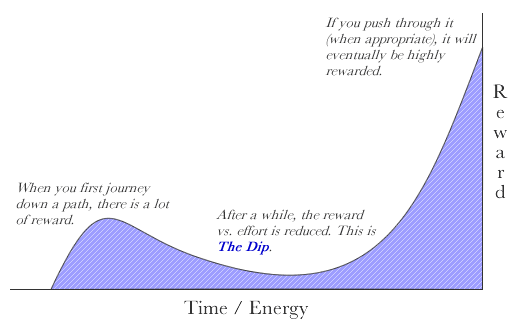
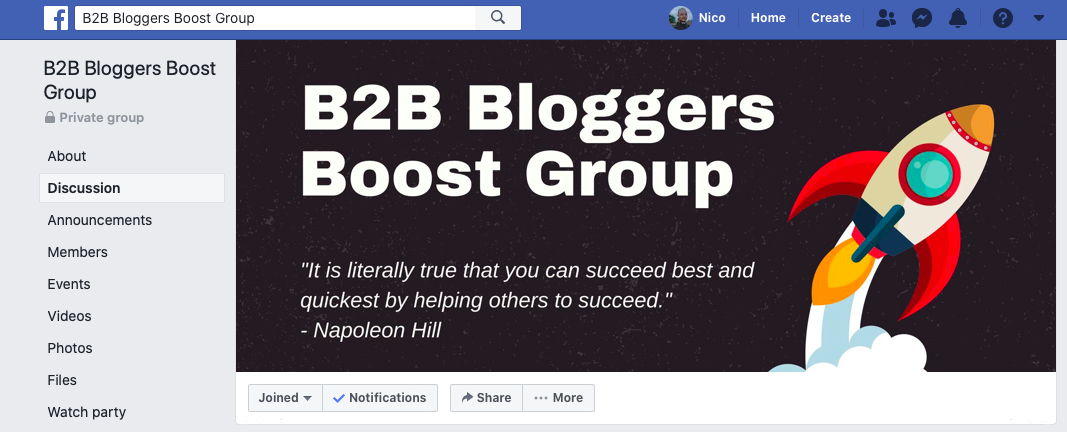
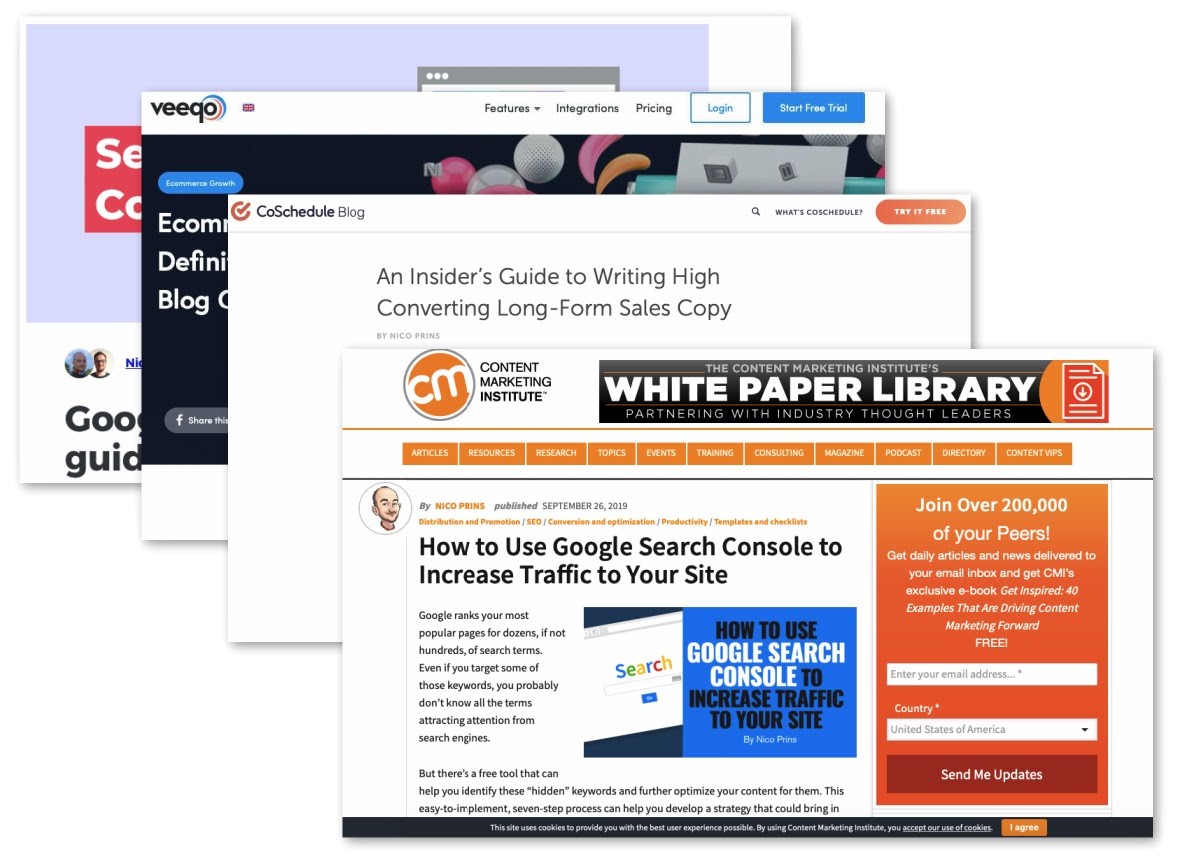
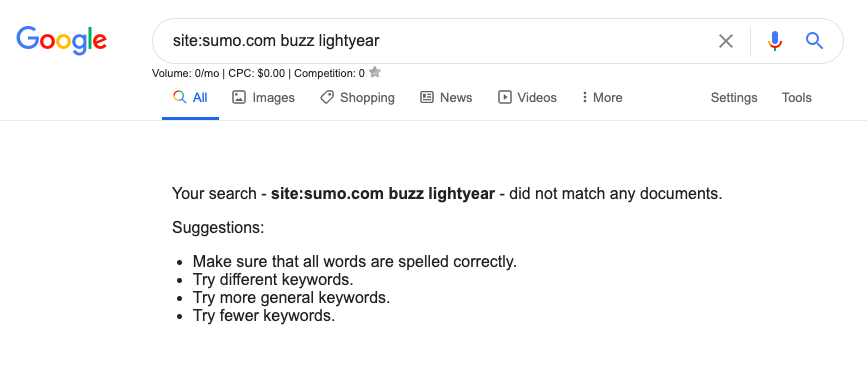
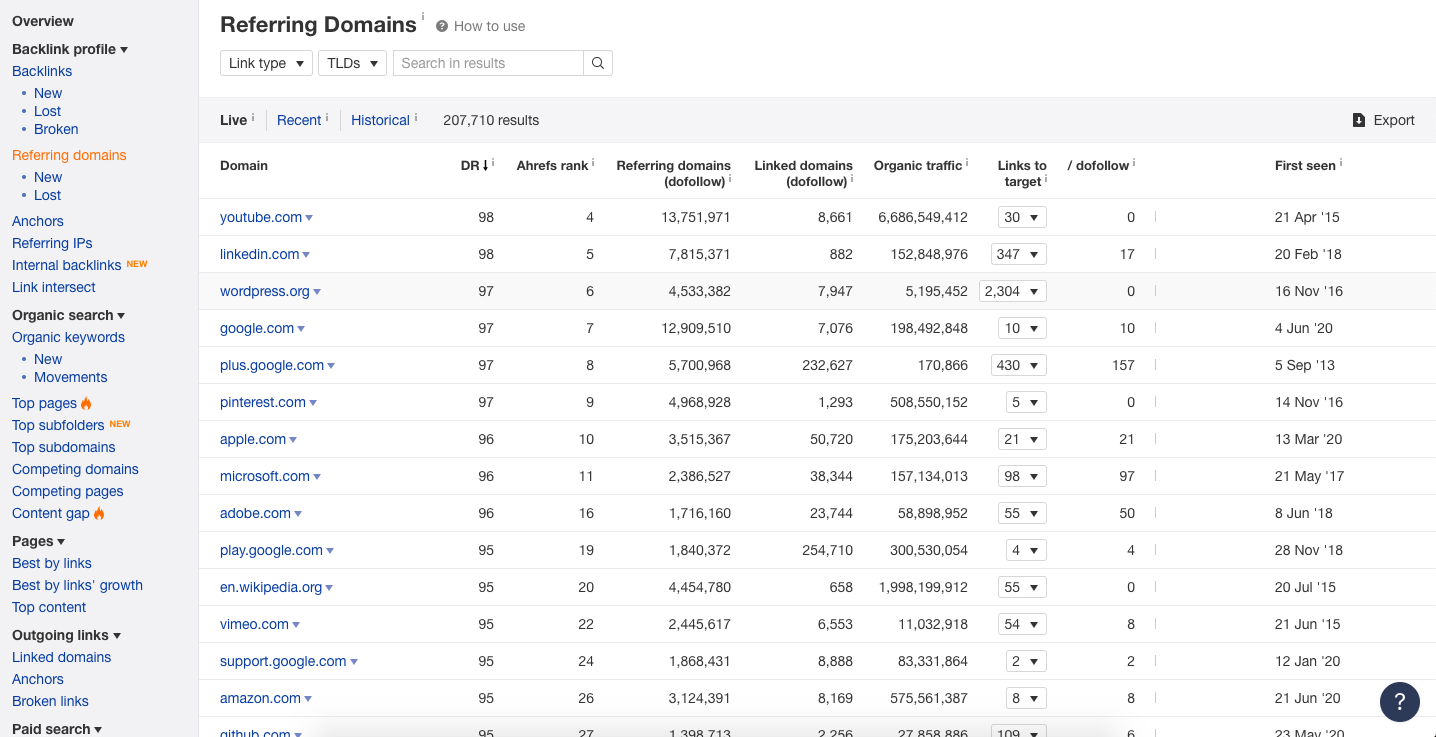

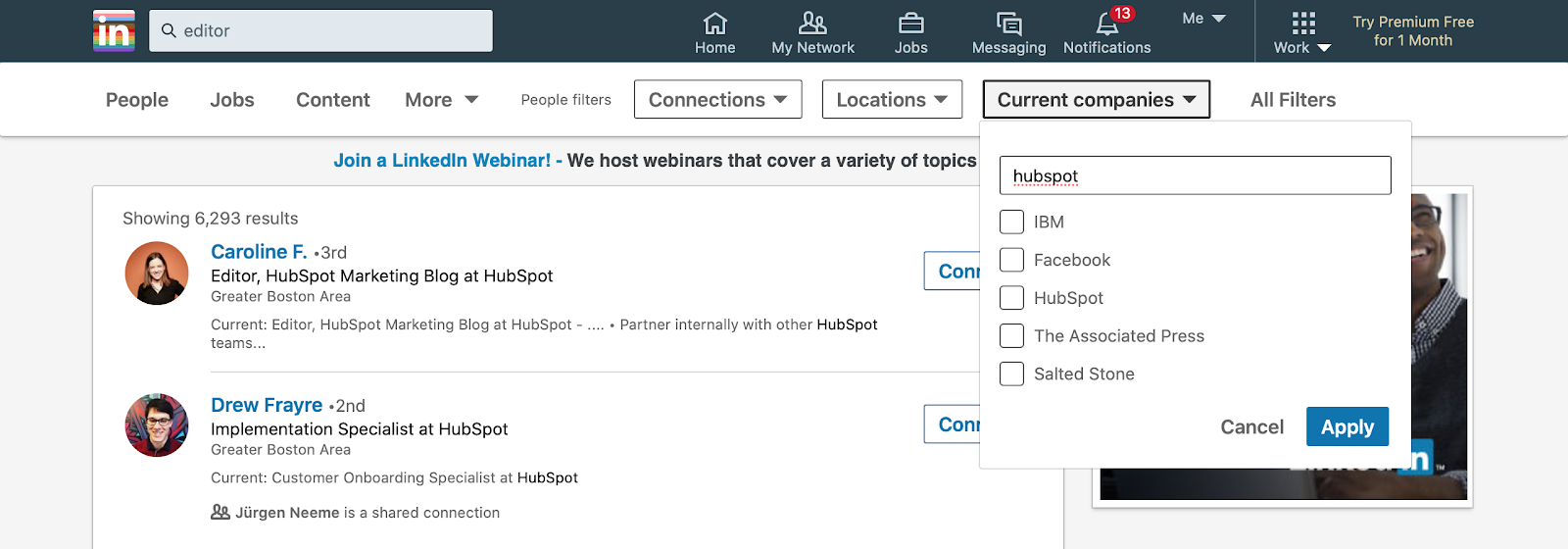
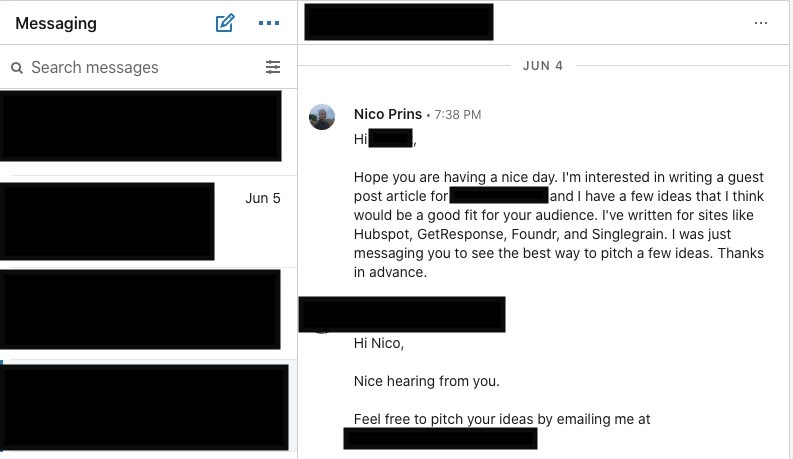
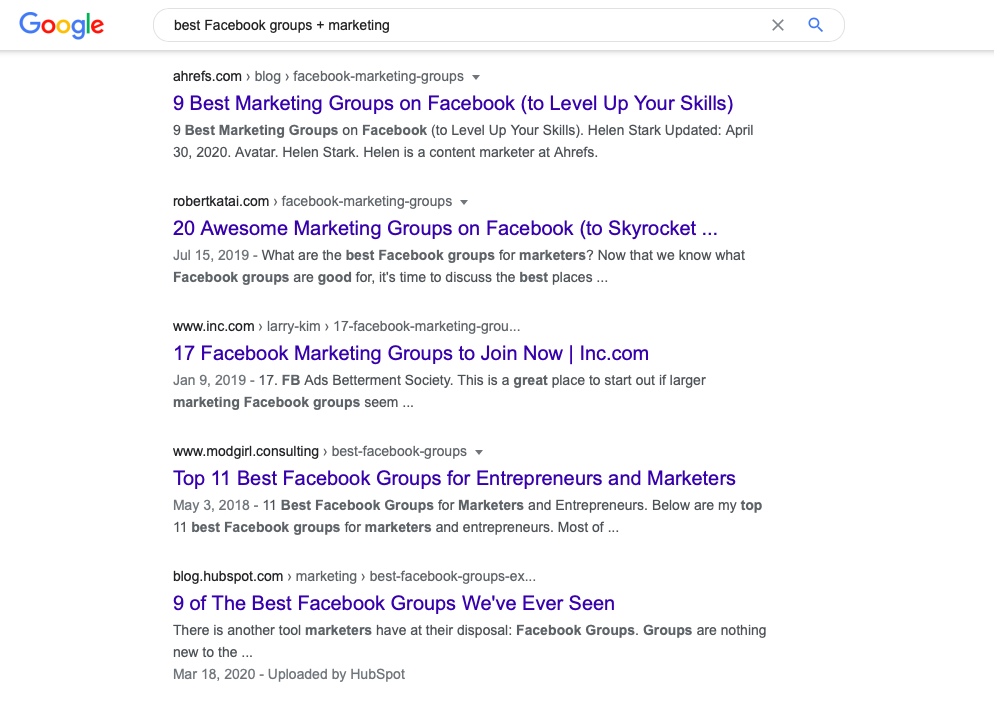
Comments